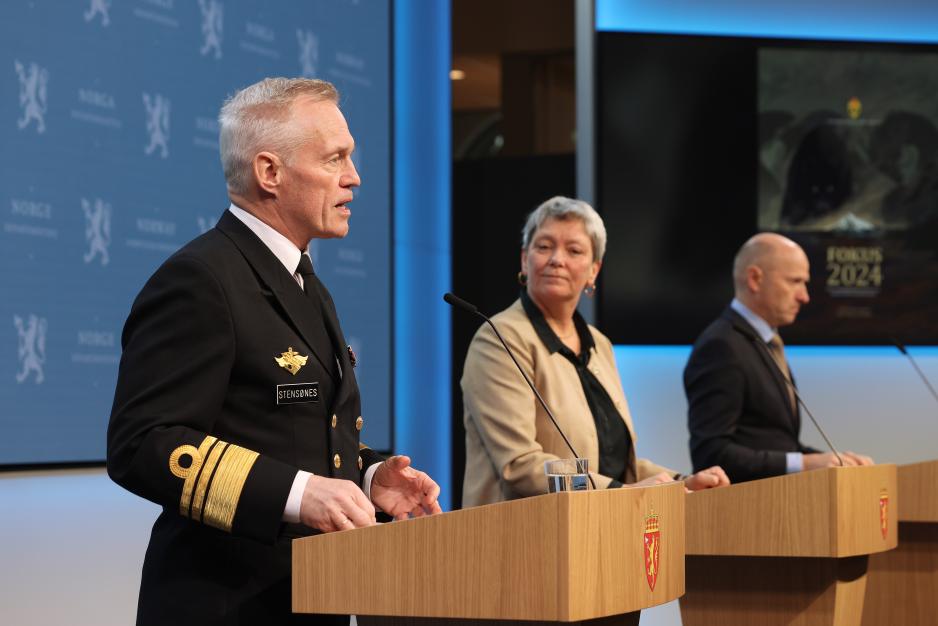Newsletter: Demanding Arctic Logistics

Chief of the Norwegian Intelligence Service, Vice Admiral Nils Andreas Stensønes, Chief of the Norwegian Police Security Service, Beate Gangås, and Chief of the National Security Authority, Lars Christian Aamodt, at the presentation of the threat assessment for 2024. (Photo: Torbjørn Kjosvold/the Norwegian Armed Forces)
Dear reader. Living in the Arctic and the High North often entails demanding logistics for businesses and residents in general. A nationally significant transport corridor between the east and the west, between Norway and Sweden, has soon been closed for two months.
Newsletter for week 8. Norwegian version.
Despite its national significance, it receives little national attention. We have written several articles about how a closed Ofoten Line, or Iron Ore Line, from Kiruna to Narvik causes losses of many billions for the business sector and society (Norwegian only).
The Armed Forces is also impacted as we near the major military exercise Nordic Response.
The three Nordic countries, Norway, Sweden, and Finland, have had to transport military equipment via ships and vehicles instead of railway ahead of the exercise.
Russian statements and threat assessments
Earlier this week, Russia announced it would no longer fund the Arctic Council.
"Not as dramatic as it sounds," writes Jennifer Spence, a researcher with long experience and expertise in Arctic cooperation, in an Op-Ed.
Slightly different is Russian MFA Sergey Lavrov's answer to questions about whether a termination of maritime agreements with Norway in the Barents Sea and with the United States in the Bering Strait is plausible.
This week, the Norwegian intelligence and surveillance institutions have presented their threat assessments, including for the High North. The main conclusion is unchanged: Russia does not pose a conventional military threat in the short term.
Tax competition with Switzerland
New initiatives are constantly being taken to attract capital and people to the Arctic. In this Friday's commentary, I write about a new proposal, a local or municipal cut in wealth tax. Bodø municipality will compete with the tax haven Switzerland for the super-rich.
Read about this and much more at High North News.
On behalf of the editorial staff, I wish our readers a great weekend.
Best, Editor Arne O. Holm.

